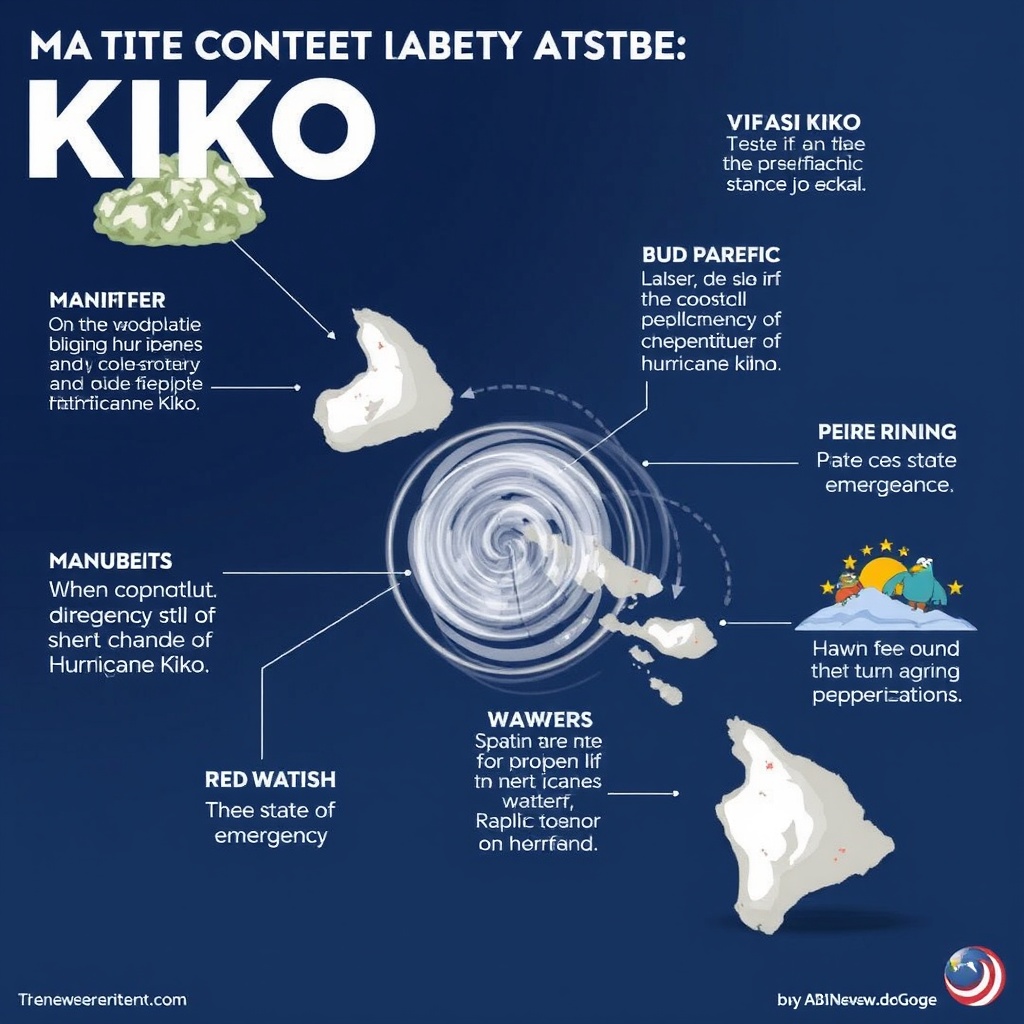Introduction
Hawaii, a tropical paradise known for its stunning beaches, lush rainforests, and active volcanoes, is no stranger to severe weather conditions. The state's unique geography and location in the Pacific Ocean make it susceptible to hurricanes, tsunamis, and other natural disasters. Recently, Hawaii was placed under a state of emergency as Hurricane Kiko approached the islands, posing a significant threat to the state's residents, infrastructure, and economy. In this article, we will delve into the details of the state of emergency, the potential impact of Hurricane Kiko, and the measures being taken to prepare for and respond to the storm.
Understanding Hurricane Kiko
Hurricane Kiko is a powerful tropical cyclone that formed in the Eastern Pacific Ocean. According to the National Hurricane Center (NHC), Kiko is a Category 4 hurricane, with sustained winds of up to 130 mph and heavy rainfall. The storm is expected to bring strong winds, heavy rainfall, and storm surges to the Hawaiian Islands, potentially causing widespread damage and disruption. The NHC has issued a hurricane watch for the islands, warning residents to prepare for the worst.
The potential impact of Hurricane Kiko is significant, with the storm threatening to bring:
- Strong winds: Sustained winds of up to 130 mph, with gusts reaching up to 160 mph, could cause widespread damage to buildings, infrastructure, and vegetation.
- Heavy rainfall: Heavy rainfall could lead to flash flooding, landslides, and storm surges, posing a significant threat to life and property.
- Storm surges: A storm surge of up to 10 feet could inundate coastal areas, causing flooding and damage to homes, businesses, and infrastructure.
Preparations and Response
In response to the threat posed by Hurricane Kiko, the state of Hawaii has declared a state of emergency. This declaration allows the state to access federal funding and resources to support preparedness and response efforts. The state's emergency management officials are working closely with local authorities, emergency responders, and the military to prepare for the storm.
Some of the measures being taken to prepare for and respond to Hurricane Kiko include:
- Evacuations: Residents in low-lying areas and flood-prone zones are being evacuated to higher ground, with shelters and emergency services available to those in need.
- Stockpiling supplies: Residents are being advised to stockpile food, water, and other essential supplies, in case they are unable to leave their homes or access basic services.
- Infrastructure preparations: Utility companies are preparing for potential power outages, with crews on standby to restore power and repair damaged infrastructure.
- Emergency services: Emergency responders, including police, fire, and medical personnel, are on high alert, ready to respond to emergencies and provide support to those in need.
Economic and Environmental Impacts
The potential economic and environmental impacts of Hurricane Kiko are significant. The storm could cause widespread damage to infrastructure, including roads, bridges, and buildings, as well as to the state's vital tourism industry. The storm could also have a significant impact on the state's environment, including:
- Agricultural damage: Heavy rainfall and strong winds could damage crops, including Hawaii's famous coffee and macadamia nut crops.
- Wildlife habitat destruction: The storm could destroy habitats and disrupt ecosystems, potentially threatening endangered species, such as the Hawaiian monk seal and the Palila bird.
- Water pollution: Heavy rainfall and storm surges could contaminate water sources, posing a significant threat to human health and the environment.
According to a report by the National Oceanic and Atmospheric Administration (NOAA), the economic impact of a hurricane in Hawaii could be significant, with estimated losses ranging from $1 billion to $10 billion. The report also notes that the storm could have a significant impact on the state's economy, including:
- Loss of revenue: The storm could cause a significant decline in tourism, a vital industry for the state, with estimated losses ranging from $100 million to $1 billion.
- Job losses: The storm could also lead to job losses, particularly in the tourism and hospitality industries, with estimated losses ranging from 1,000 to 10,000 jobs.
Conclusion
Hawaii's state of emergency ahead of Hurricane Kiko is a timely reminder of the importance of preparedness and response in the face of natural disasters. The potential impact of the storm is significant, with strong winds, heavy rainfall, and storm surges posing a threat to life, property, and the environment. As the storm approaches, residents, emergency responders, and officials are working together to prepare for the worst, with evacuations, stockpiling of supplies, and infrastructure preparations underway.
In the aftermath of the storm, it is essential that the state and federal governments work together to provide support and resources to those affected, including funding for relief efforts, infrastructure repairs, and economic recovery. The state's unique geography and location make it susceptible to severe weather conditions, and it is crucial that the state and its residents are prepared to respond to and recover from these events.
As we look to the future, it is essential that we learn from the experiences of Hurricane Kiko and other natural disasters, and work to develop more effective strategies for preparedness, response, and recovery. This includes investing in infrastructure, developing more resilient communities, and supporting research and development of new technologies and strategies for mitigating the impacts of natural disasters. By working together, we can reduce the risks and impacts of these events, and build a more resilient and sustainable future for Hawaii and its residents.


Leave a comment